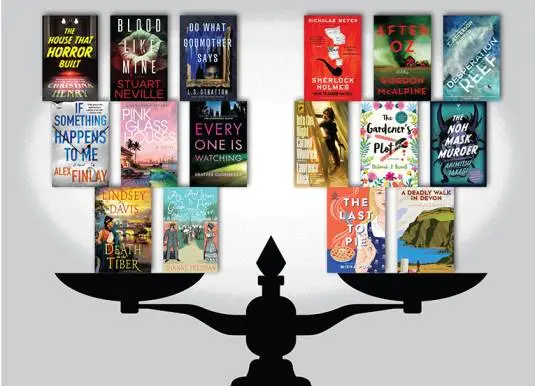13 Books to Watch For in June

‘A Burning,’ by Megha Majumdar (Knopf, June 2)
A train attack in Kolkata brings together the fates and fortunes of three characters: Jivan, a young Muslim who is blamed for the attack because of a social media post; PT Sir, a gym teacher who becomes involved with a right-wing political party; and Lovely, a transwoman studying acting. Majumdar’s debut explores power, justice and vulnerability in contemporary India.
[ Megha Majumdar is one of our writers to watch this summer. Read more about her and the other three. ]
‘The Biggest Bluff: How I Learned to Pay Attention, Master Myself, and Win,’ by Maria Konnikova (Penguin Press, June 23)
It seems natural that Konnikova — a journalist who has studied confidence, deception and human psychology — would be drawn to poker. In her new book, she writes about the lessons she learned while studying with a member of the Poker Hall of Fame. She had originally wanted to learn the game to better understand chance and luck. But before long, she was earning money as a professional player.
‘Death in Her Hands,’ by Ottessa Moshfegh (Penguin Press, June 23)
In this novel — which Moshfegh described as “a loneliness story” — a widow, Vesta Gul, finds a cryptic note on her daily walk: “Her name was Magda. Nobody will ever know who killed her. It wasn’t me. Here is her dead body.” There wasn’t a body in sight. But soon, Vesta is consumed by the mystery, imagining suspects and possible motives, even inventing a life for Magda as her she loses her own grip on reality.
[ Read our profile of Ottessa Moshfegh. ]
‘The Deviant’s War: The Homosexual vs. the United States of America,’ by Eric Cervini (Farrar, Straus & Giroux, June 2)
During the Cold War era, thousands of federal employees lost their jobs because they were believed to be gay. Frank Kameny, dismissed from the U.S. Map Service in 1957, was one of them. This judicious and heavily researched biography illustrates a slice of gay civil rights history that is often overshadowed by the Stonewall riots.
‘Devolution: A Firsthand Account of the Rainier Sasquatch Massacre,’ by Max Brooks (Random House, June 16)
Brooks — best known as the author of “World War Z,” a zombie novel that inspired a movie adaptation starring Brad Pitt — is, as the Times Magazine put it, “our nation’s lone zombie public intellectual.” Here Brooks turns his attention to a different kind of legendary monster: Bigfoot. After Mount Rainier erupts, lava flows surround an exclusive Washington community, Greenloop, cutting it off from the rest of the world. That’s when the real problems begin.
‘Friends and Strangers,’ by J. Courtney Sullivan (Knopf, June 30)
Life as a new mother hasn’t been easy for Elisabeth, a best-selling author who recently left Brooklyn for a small university town. She’s exhausted by caring for her son, her relationship with her best friend has been reduced to text messages, and she’s struggling to adapt to her new life, preferring to scroll through posts in a “BK Mamas” Facebook group. When she hires a local college student to babysit, the women become unexpectedly close — until a secret threatens to rupture their relationship.
‘Love,’ by Roddy Doyle (Viking, June 23)
A long, far-reaching conversation between two old friends is the framework for this new novel by the Booker Prize-winning Irish author. Davy has returned from England to tend to his dying father, while Joe has left his wife for a woman whom both men knew in their younger days. In the course of a booze-fueled evening, bittersweet and painful memories come to the surface in pubs across Dublin as the friends reflect on their lives.
[ Roddy Doyle is one of our writers to watch this summer. Read more about him and the other three. ]
‘The Next Great Migration: The Beauty and Terror of Life on the Move,’ by Sonia Shah (Bloomsbury, June 2)
Should human migration be a source of anguish or merely seen as a natural biological impulse? Shah, a science journalist, links human migration with that of many other species. Rather than see human movement as the cause for political or cultural concern, she writes, we need to understand that migration has been a lifesaving impulse for centuries, helping our ancestors respond to climate change and allowing for biological and social diversity.
‘Our Time Is Now,’ by Stacey Abrams (Henry Holt, June 9)
Abrams came to national prominence in 2018 as the Democratic candidate for Georgia governor — the first black female nominee from a major party to run for that post in any state. The race was hotly contested; Abrams argued that her opponent’s narrow victory was the result of racially motivated voter suppression. Ever since, she’s been outspoken on the subject of fair elections, and has worked to expand ballot access across the country. Her book is a call to arms, arguing for the importance of increased voter protection and deeper engagement with the census.
‘Parakeet,’ by Marie-Helene Bertino (Farrar, Straus & Giroux, June 2)
In the days leading up to her wedding, an ambivalent bride-to-be has a series of unsettling encounters, including one with her beloved, long-dead grandmother, who appears in the form of a bird and warns her not to marry. This surreal novel balances the lingering effects of immigration, family trauma and violence with highbrow allusions and humor.
‘Sex and Vanity,’ by Kevin Kwan (Doubleday, June 30)
Kwan pays homage to E.M. Forster’s “A Room With a View” in his latest novel, which opens with a young woman, Lucie, traveling to a friend’s wedding in Capri with her prim cousin. Their accommodations aren’t satisfactory, and a wealthy stranger insists on trading rooms with them. Fans of Kwan’s “Crazy Rich Asians” trilogy will notice similar themes here: characters caught between two cultures, who must reconcile their desires with their families’ expectations — all while attending great parties and swanning about in designer clothes.
‘Surviving Autocracy,’ by Masha Gessen (Riverhead, June 2)
Soon after the election of Donald Trump, Gessen wrote a widely read essay in The New York Review of Books about how to survive under politically exigent circumstances. A former longtime resident of Moscow, she is well-suited to the subject; her earlier book, “The Future Is History: How Totalitarianism Reclaimed Russia,” won a National Book Award. Now, Gessen makes an explicit case that President Trump is an autocrat, cataloging the ways that he has corroded democracy in the U.S. As she writes, he was “probably the first major party nominee who ran not for president but for autocrat. And he won.”
‘The Vanishing Half,’ by Brit Bennett (Riverhead, June 2)
In 1950s Louisiana, two light-skinned twin sisters, Desiree and Stella Vignes, leave behind their small hometown for New Orleans. Years later, Desiree returns home to raise her dark-skinned daughter — “black as coffee, asphalt, outer space, black as the beginning and the end of the world,” while Stella moves to California, where she lives under a new name and passes as white. Bennett, who won acclaim for her debut, “The Mothers,” has delivered another immersive family drama, one that raises questions of identity and personal freedom.
[ Read our review of “The Vanishing Half.” ]
Follow New York Times Books on Facebook, Twitter and Instagram, sign up for our newsletter or our literary calendar. And listen to us on the Book Review podcast.




